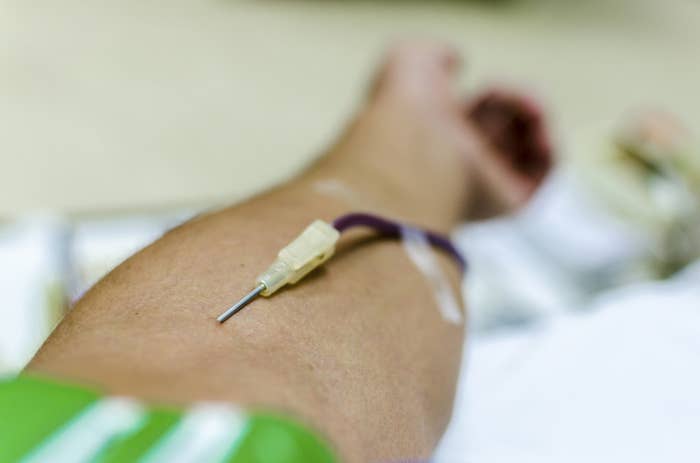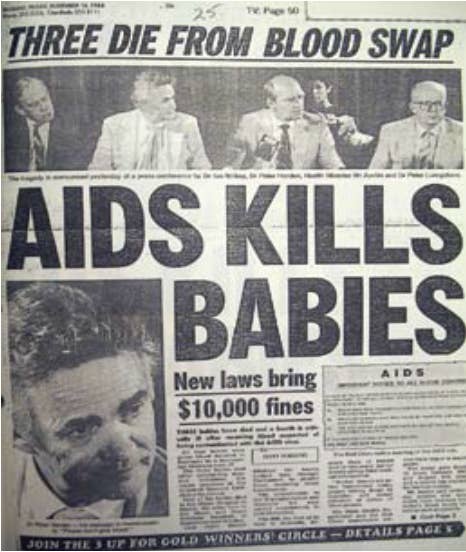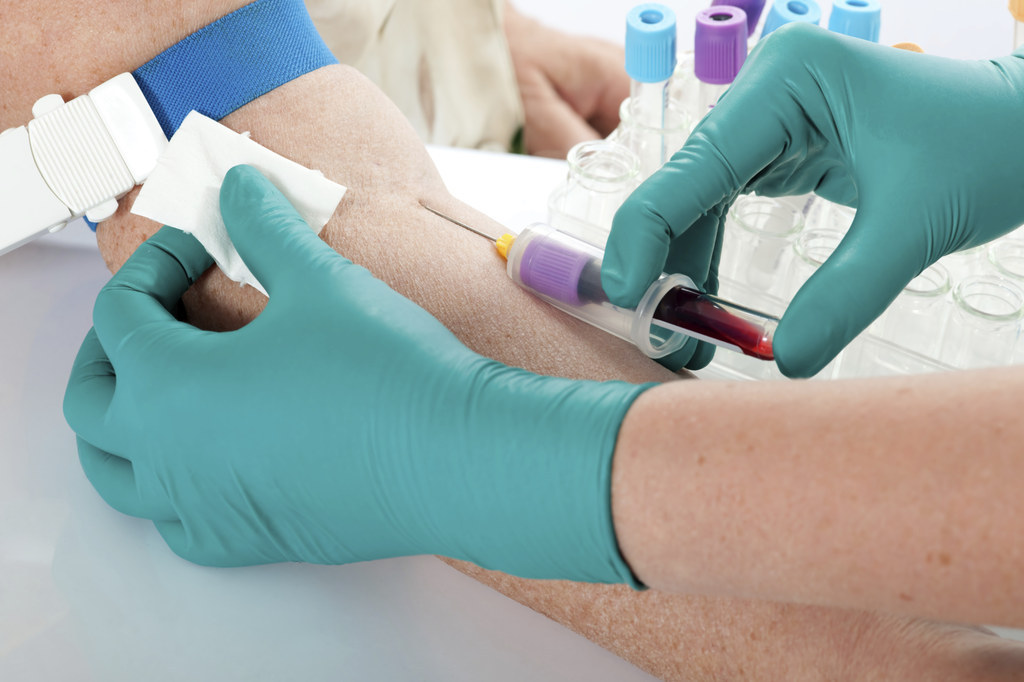In Australia, gay men who wish to donate blood are still forbidden from doing so despite advances in technology making it much safer.

First thing's first: The ban isn't simply on 'gay' men, it's on any man who's had sexual contact with another man (MSM) in the last 12 months.
That means any man, whether they're single or in a committed relationship, must avoid all sexual contact with another man for 12 months in order to legally give blood. It also doesn't matter whether that man always uses a condom, is regularly tested for HIV and other STIs or has a note form his doctor. The same rule applies to women who have sexual contact with MSM. (ie a woman with a bisexual partner)
There are similar rules in place around the world. In the U.S., MSM face a lifetime ban. In Canada the deferral period is five years and in New Zealand it is one year. In some countries, like South Africa and South Korea, there is no deferral period.
The one-year deferral period exists for one reason, which on the face of it looks pretty simple: Around 80% of new HIV diagnoses come from MSM, and the people responsible for regulating blood can't risk HIV-tainted blood getting in to the supply.
But there's a lot more to it.
To understand why people are so nervous about gay men donating blood, we have to go back to images like this.

On November 16, 1984 it was announced that three babies in Queensland had died after being given AIDS-infected blood by a gay donor. This was still in the early days of the AIDS epidemic when politicians were grappling with methods to stop the spread of HIV/AIDS.
Concerns over donations from gay men prompted authorities to ask "promiscuous" homosexuals to refrain from donating. Gay men, who were often donating blood as a way to be subtly tested for sexually transmitted infections, protested claiming they were being unfairly targeted.
Meanwhile politicians in the middle of an election year saw an opportunity to score political points by demonising homosexuals.
"If it wasn't for the promotion of homosexuality as a norm by Labor, I am quite confident that the deaths of these three poor babies would not have occurred," the then-leader of the Nationals Party, Ian Sinclair said.
"The Labor party is as much to blame with their acceptance of that type of low and disgusting lifestyle, and [former pm Bob] Mr Hawke is to blame by promising equal government support for homosexual marriages," claimed ultra-conservative Queensland Premier Joh Bjelke-Petersen.
It was attitudes like this, and an AIDS crisis spiraling rapidly out of control, which led to a blanket ban on blood donations from men who have sex with men.
In 1984, this may have been prudent health policy, but in 2015, experts say public policy has failed to keep up with the rapidly improving technologies.
Heaps of experts whose sole job is to prevent the spread of HIV say a one-year ban isn't necessary any more.

In 2013 the Red Cross Blood Service teamed with experts from Australia's peak HIV/AIDS research group, The Kirby Institute, and the Australian Federation of AIDS Organisations (AFAO) to ask the Therapeutic Goods Administration (TGA) to lower the deferral period.
It is the TGA which has ultimate responsibility for deciding who can and cannot give blood. (Not, as is often suggested, the Red Cross Blood Service)
The group put together what they thought was a compelling case; pointing out that new testing methods mean it no longer takes anywhere close to a year to detect HIV in a person's blood. New rapid testing can return a result almost instantly, but even playing on the safe side, three months is more than enough to detect a new HIV infection.
The group thought that by asking the TGA to lower the deferral period to six months, they were certain to have their request granted.
The TGA denied the request on the basis that the benefits of lowering the deferral period would not outweigh the potential risks, while noting a recent increase in newly-diagnosed HIV cases in MSM in 2013.
"Several factors were taken into account. In discussions between the TGA and the Blood Service, and in our consultations with a wider group of healthcare professionals," TGA National Manager Professor John Skerritt wrote to the head of the Red Cross.
"It was agreed that a change in the donor deferral period six months from the current 12 month period would be unlikely to provide a significant increase in the blood supply."
Dr Bridget Haire, a public health expert and the President of the Australian Federation of AIDS Organisations, says authorities have inherited an exaggerated fear of contagion from the 1980s.

"An appropriate deferral period is one determined by evidence, with a bit extra to allow for human error in calculation," she told BuzzFeed News. "I believe that between three and six months would well and truly account for the window periods in blood borne viruses."
But despite the calls from experts like Dr Haire, things are unlikely to change any time soon. A spokeswoman for the TGA confirmed to BuzzFeed News that the policy stands and the ball is back in the court of the Red Cross Blood Service.
The blood service has said it will return to the TGA to request a shorter deferral period, but that request is unlikely to come before 2018. Until then, gay men will just have to wait.
